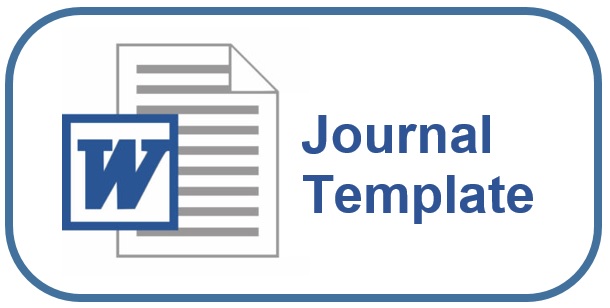Community services Community services in an effort to utilize household food waste as organic fertilizer in addition to bioactivators in Balikpapan
DOI:
https://doi.org/10.36277/abdimasuniversal.v3i1.114Keywords:
community services, household food waste, organic fertilizers, bioactivatorsAbstract
Lack of household food waste management results in major environmental problems, such as bad smells and dirt, as well as greenhouse gas emissions, which adversely affect public health. The goal of this community services was to transform household food waste into organic fertilizer, so agricultural output, economize resources, and public health can be increased. The method used in this service was that of individual or one-on-one and group counseling. The benefit of the activity was to produce high-value compost generated from househol food waste and utilization of local resources. After conducting the community services, found that that the community of Klandasan Ulu in Balikapan, who was involved in the training on household food waste management, fathomed how to discover household food waste to become organic fertilizers with economic and environmental value by adding bioactivators at room temperature and facultative aerobic condition. The impact of this training on patterns of community garbage disposal action was also observed.
Downloads
References
Boonrod, K., Towprayoon, S., Bonnet, S., & Tripetchkul, S. (2015). Enhancing organic waste separation at the source behavior: a case study of the application of motivation mechanisms in communities in Thailand. Resources, Conservation and Recycling, 95, 77-90.
Cundari, L., Arita, S., Komariah, L. N., Agustina, T. E., & Bahrin, D. (2019). Pelatihan dan pendampingan pengolahan sampah organik menjadi pupuk kompos di desa burai. Jurnal Teknik Kimia, 25(1), 5-12.
Harir, A. I., Kasim, R., & Ishiyaku, B. (2015). Resource potentials of composting the organic wastes stream from municipal solid wastes compositions arising in Nigerian cities. Journal of Geoscience and Environment Protection, 3, 10-15.
Hazra, T., & Goel, S. (2009). Solid waste management in Kolkata, India: Practices and challenges. Waste management, 29(1), 470-478.
Ilhamdi, M. L., Handayani, Y., Saputri, A., Anjani, M., Najjah, S. S., Yulianingsih, E., & Mustakim, M. (2019). Penyuluhan, Pelatihan dan Pendampingan Pengelolaan Limbah Rumah Tangga Menjadi Pupuk Organik di Desa Kerumut Kecamatan Pringgabaya. Jurnal Pengabdian Magister Pendidikan IPA, 2(1).
Jiang, Y., Ju, M., Li, W., Ren, Q., Liu, L., Chen, Y., ... & Liu, Y. (2015). Rapid production of organic fertilizer by dynamic high-temperature aerobic fermentation (DHAF) of food waste. Bioresource technology, 197, 7-14.
Kurien, B. A., Varghese, B. A., Rony, J., Roy, J., & Varghese, A. K. (2014). WASTE MANAGEMENT: DRUM SIEVE SEGREGATOR. WASTE MANAGEMENT, 2(1).
Lim, W. J., Chin, N. L., Yusof, A. Y., Yahya, A., & Tee, T. P. (2016). Food waste handling in Malaysia and comparison with other Asian countries. International Food Research Journal, 23, S1.
Moh, Y. C., & Abd Manaf, L. (2014). Overview of household solid waste recycling policy status and challenges in Malaysia. Resources, Conservation and Recycling, 82, 50-61.
Sang-Arun, J., Menikpura, N., & Agamuthu, P. (2013). Co-benefits of the 3Rs (reduce, reuse and recycle) of municipal solid waste on climate change mitigation. 3R indicators factsheets ver, 1.
Sasitharan, N., Ismail, A. R., & Ade, A. (2012). Construction waste management: Malaysian perspective. In The International Conference on Civil and Environmental Engineering Sustainability IConCEES.
Sutrisno, E., Zaman, B., Wardhana, I. W., Simbolon, L., & Emeline, R. (2020, March). Is Bio-activator from Vegetables Waste are Applicable in Composting System?. In IOP Conference Series: Earth and Environmental Science (Vol. 448, No. 1, p. 012033). IOP Publishing.
Task, I. B. (2018). THE ROLE OF ANAEROBIC DIGESTION AND BIOGAS IN THE CIRCULAR ECONOMY.
Thi, N. B. D., Kumar, G., & Lin, C. Y. (2015). An overview of food waste management in developing countries: Current status and future perspective. Journal of environmental management, 157, 220-229.
Zhang, C., Su, H., Baeyens, J., & Tan, T. (2014). Reviewing the anaerobic digestion of food waste for biogas production. Renewable and Sustainable Energy Reviews, 38, 383-392.





















